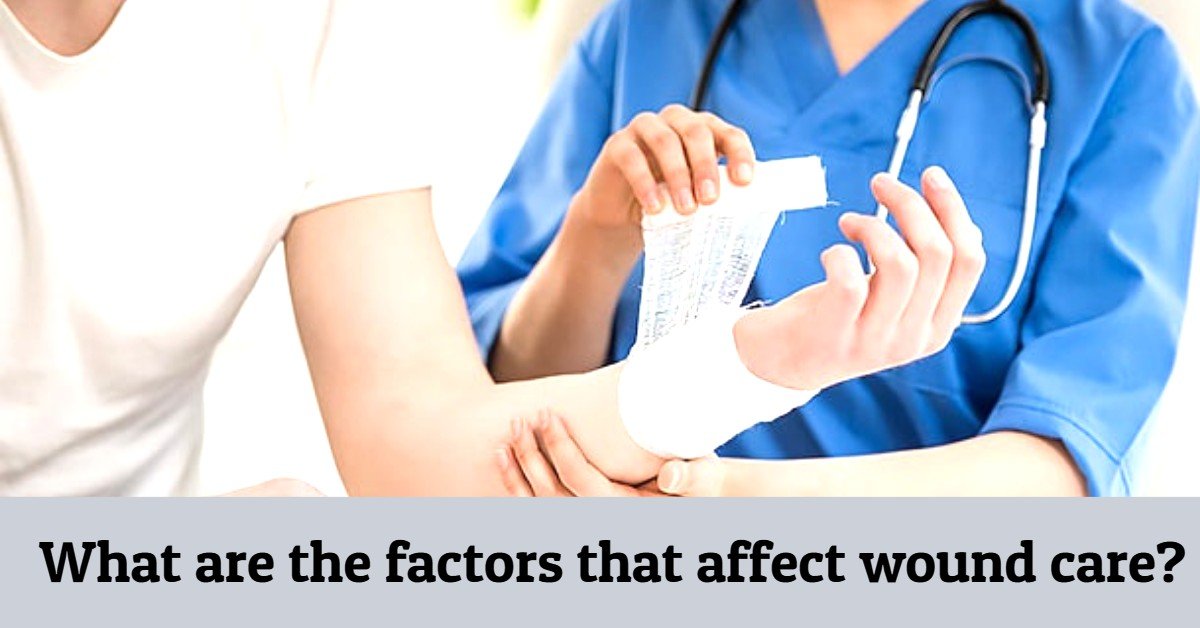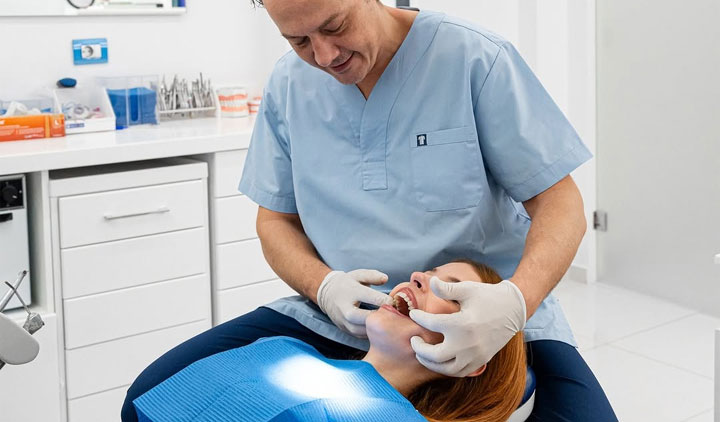What are the factors that affect wound care?
Regardless of the cause, wound care at home often proceeds logically. Chronic wounds often experience a halt in the healing process at one or more of the stages.
“wound healing” refers to how a live entity replaces injured or destroyed tissue with new tissue. Skin’s epidermis and dermis constitute a protective barrier against the outside world in uninjured skin. In chronic wounds, these are the most prevalent elements that influence healing:
Factors that affect wound care are mentioned below-
All-around health
You can’t ignore the impact your general health has on a slew of various things. More efficient organs and quicker healing of wounds benefit a healthy lifestyle. When it comes to maintaining a healthy lifestyle, diet, exercise level, immune system strength, smoking status, and weekly alcohol use are the most important factors to consider.
Your wound will heal more quickly if you convert to a diet that supplies your body with all of the nutrients it needs. You must feed your body lots of fruits, veggies, lean proteins, whole grains, healthy fats, and fiber if you want to recover rapidly and prevent chronic wounds. When it comes to your health, processed foods do more damage than good. Consult your doctor about taking a multivitamin or specific vitamins if you’re lacking in any of the nutrients essential for healthy cell repair and development for any reason.
Being physically active every day may significantly impact your health and well-being. They are more susceptible to complications from treatments or recovery when inactive. Get your heart pumping and avoid sitting or standing for long periods. Try taking a five-to-ten-minute stroll around the office every hour or so, or if you can’t stand for long periods, get a standing desk. Your body’s ability to mend itself will be enhanced if you improve blood flow in your body.
Nutrition and regular physical exercise both contribute to developing a robust immune system. If you’re on immunosuppressants or radiation treatment, let your doctor know so that they can adequately prepare you for the wound care process.
Slow healing and persistent wounds are other possible consequences of heavy alcohol usage. Besides the obvious health hazards of cigarettes, smoking also significantly slows down the healing process once a wound has been sustained. Speak with your doctor about the choices available to you if you’re having trouble stopping smoking or drinking less alcohol.
Age
Even though age is simply a number, it impacts how our bodies function. Our bones and muscles deteriorate as we become older, making it more challenging to get about. Our bodies’ capacity to heal wounds diminishes as we become older. As you age, your skin thins and becomes more vulnerable to injury, and your immune system’s inflammatory response slows down. If you are more likely than others to be hurt and suffer from acute wounds, your body will take longer to recover, and chronic injuries will become more common.
Weight
Obesity is still harmful and may cause significant medical issues, even though many individuals are moving toward a mindset of appreciating one’s body regardless of its size. Even if self-hatred isn’t warranted, it’s critical to deal with obesity and make progress toward weight loss. Obesity causes a wide range of health issues, which may be life-threatening. In addition, it makes it difficult for your body to repair itself after an injury, which raises your risk of infection. Contact your doctor if you need assistance losing weight or learn more about weight loss methods.
Poor blood circulation, which may impair wound care healing at home, is another side effect of increasing fat in the body. Because of vascular disease, whether caused by obesity or not, you may require additional wound care products to prevent acute wounds from becoming chronic in the first place. To learn ways to assist your body recover more quickly if you suffer from vascular disease or low blood pressure, speak with your doctor.
The Trauma Type
If you have an injury that needs stitches, it will take longer to heal. Wounds that penetrate more profound than the skin take longer to heal than wounds that penetrate the epidermis. Wounds heal at various rates depending on their size, shape, and depth. It is easier to coagulate linear wounds compared to broad, rectangular ones. The damaged region must be healed from outside to inside to repair circular wounds. The source of the damage influences the speed at which a wound heals. A significant injury necessitates a hospital stay so that physicians can keep an eye on your wounds and minimize the risk of infection.
Moisture in the Skin
Moisture and fluid are essential for the effective healing of wounds. A dry wound may lead to lesions, an increased risk of infection, and a longer wound care healing process. Factors that affect wound care, Because dry skin is more at risk of thickening, it may also slow or impede healing. If you have dry skin, speak to your doctor about what you can do to aid your body’s recovery. Additionally, very wet wounds increase your risk of maceration. Bandages are available in a variety of designs to assist you in attaining the ideal level of skin moisture and speed up your healing time.
Conditions that last over an extended period
Wound healing might be hampered if you have a chronic disease that puts additional stress on your body. Wound healing may be slowed in people with cardiovascular problems because blood flow is essential to mend wounds and build new skin. Injuries that take a long time to heal in people with diabetes are also more likely to develop immunodeficiency problems.
Medications
Aspirin and ibuprofen, as well as many arthritis medications, may interfere with the inflammatory healing process. There may be an alternative to the medicine you’re taking, or you may want to wait to start retaking it until your wound has healed. Make sure to notify your doctor if you’re taking any drugs and have been injured so that they can create a treatment plan that works for you.
The Treatment of Wounds
How you care for your wound directly influences how quickly it heals—neglecting your wound and allowing it to get infected increases your chance of further problems. It is essential to use the necessary dressings, lotions, and other cleaning methods to speed up the healing process. Factors that affect wound care– Ask your doctor for advice on caring for your wound and how to change your dressings appropriately after you get home from the hospital.
Conclusion
Wound healing would be ideal if it were able to heal every wound. Many therapeutic methods are available to help chronic wounds heal faster, including frequent washing, debridement, wound dressings designed explicitly for the purpose, negative pressure wound therapy (NPWT), and hyperbaric oxygen therapy (HBOT) (HBO). As a result, healthcare professionals must identify the conditions that hinder wound healing to apply these alternative therapies effectively.
Read Also – Best-pet-apps-for-your-phone
Acute wounds are simple to cure, but healing becomes more complex and takes much longer if they become chronic wounds. Talk to your doctor about building a particular treatment plan to ensure your wound care safely and promptly. Stocking up on wound care materials and dressings is the best way to be prepared.
Author bio:
Naman Modi is a Professional Blogger, SEO Expert & Guest blogger at wilmingtonurgentclinic.com. He is an Award-Winning Freelancer & Web Entrepreneur helping new entrepreneurs launch their first successful online business. sprunki horror Endless Fun Awaits!



